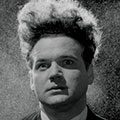What do documentary filmmakers owe their subjects?
Should subjects expect their actions/views/opinions to be accurately represented? What if the subject lies about something? Should the filmmaker include the lie, include it with additional context/contradiction, or remove it entirely? What if the lie is the story (e.g. The Thin Blue Line)?
Should the subject get final approval over which of their statements (and how much of said statements) make it into the final cut? Or should filmmakers be able to use anything they capture on camera?
The article The Wolfpack and the ethics of documentary filmmaking1 has really got my brain working overtime trying to untangle all these knots.
Documentary filmmaking seems like an odd kind of collaboration.
On one side you have the subject/s, whose story is being told and should therefore have the right to tell the story how they like. On the other side you have the filmmaker, the person who has decided to make a film in the first place and should therefore control the shape of the final product. Without the filmmaker you have no film, but without the subject you have no film either.
In some ways it’s a weird kind of adversarial collaboration, because if the filmmaker goes too far to appease the subject and doesn’t approach the story with a critical eye, they leave themselves open to manipulation from the subject. But by the same token, if the filmmaker completely disregards the subject’s wishes and treats the subject as nothing more than a source of information, the subject could pull out of the project and deny the filmmaker access to a crucial perspective.
These ideas were ruminating in my head as I watched The Wolfpack, which concerns a group of siblings holed up in a New York City apartment for essentially their entire lives without any contact with the outside world. The kids and the filmmaker each had a vested interest in this story being made: the kids were obsessed with movies and wanted to get into the entertainment industry (and saw a film about them as a potential avenue towards this goal), and the filmmaker had stumbled upon an incredibly rare and interesting situation to make a film about. The filmmaker — Crystal Moselle — was in a precarious position, because her ability to tell this story was entirely dependent on her continued access to the Angulo family and their apartment, so if she did anything the kids didn’t like they could have asked her to leave and never come back, leaving her without anything to film. Moselle has complete power over the finished product of the film, but the kids control her ability to create that final product.
The Wolfpack strikes me as more of a willing collaboration than many documentaries: Moselle seemed happy to allow the Angulo kids to drive the story, to talk about only what they wanted to talk about, to leave certain areas of potential interest unexplored. The resulting film is as much the Angulos’ film as it is Moselle’s, at least in my estimation. It’s very different in tone and style compared to, say, Senna, which is about Ayrton Senna but obviously had no involvement from him, since he had passed away years earlier. The ethical concerns in that case are much different to in the case of The Wolfpack, though no less important and interesting to think about.
After watching the film I went looking for some interviews with Moselle, because I was really interested in how she found this incredibly unique story. In an interview with Flicks from around the time the film played at MIFF, she answered this question:
FLICKS: I’M SURE THIS IS A FAMILIAR QUESTION BY NOW, BUT IT HAS TO BE ASKED – HOW DID YOU MEET THESE KIDS?
CRYSTAL MOSELLE: I was just walking down the street in New York City and they ran past me. And something about them just really intrigued me.
As a filmmaker I find inspiration from characters, usually people that I just see around. And so I went after them. I just instinctively ran. I don’t even know why.
The director literally passed some interesting looking kids on the street in NYC and approached them — that illustrates the kind of attitude you need to have as a documentary maker. You need to be willing to break or ignore social boundaries and investigate things other people would never investigate. It’s a lot like being a journalist: you need to be comfortable picking up a phone or walking up to a stranger and just asking them questions. I really want to be the kind of person who can do that — I often find myself on a tram noticing someone and wondering what their story is — but I need to get over the social anxiety that stops me from doing it.
- Thomas, S. (2015), ‘The Wolfpack and the ethics of documentary filmmaking’, Pursuit, <https://pursuit.unimelb.edu.au/articles/the-wolfpack-and-the-ethics-of-documentary-filmmaking> ↩
